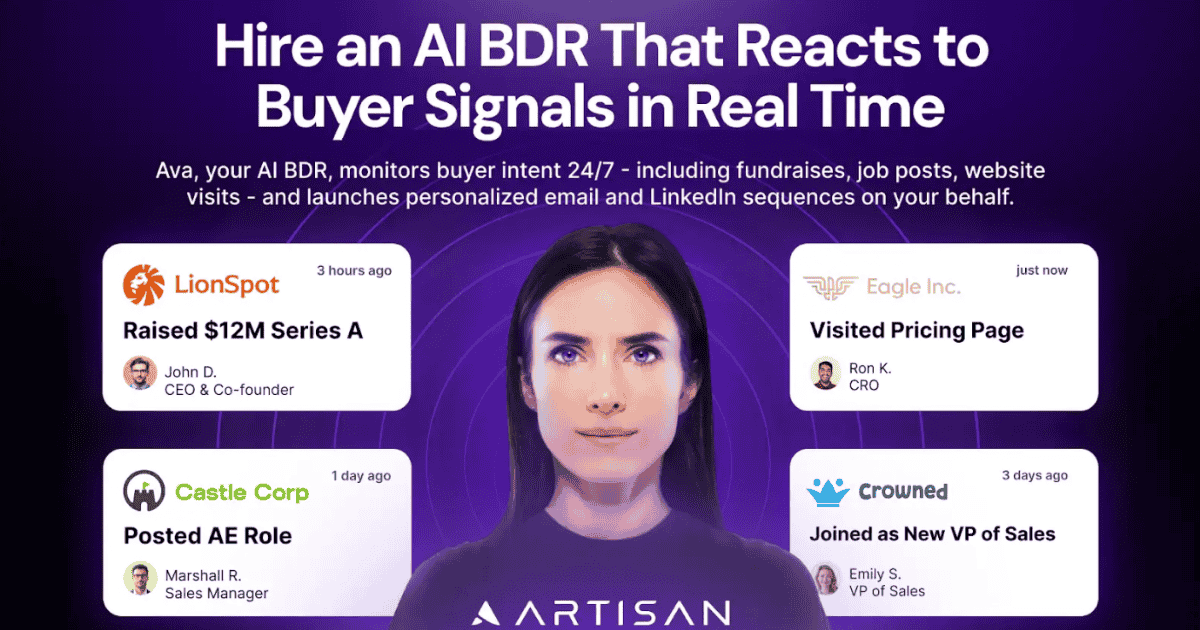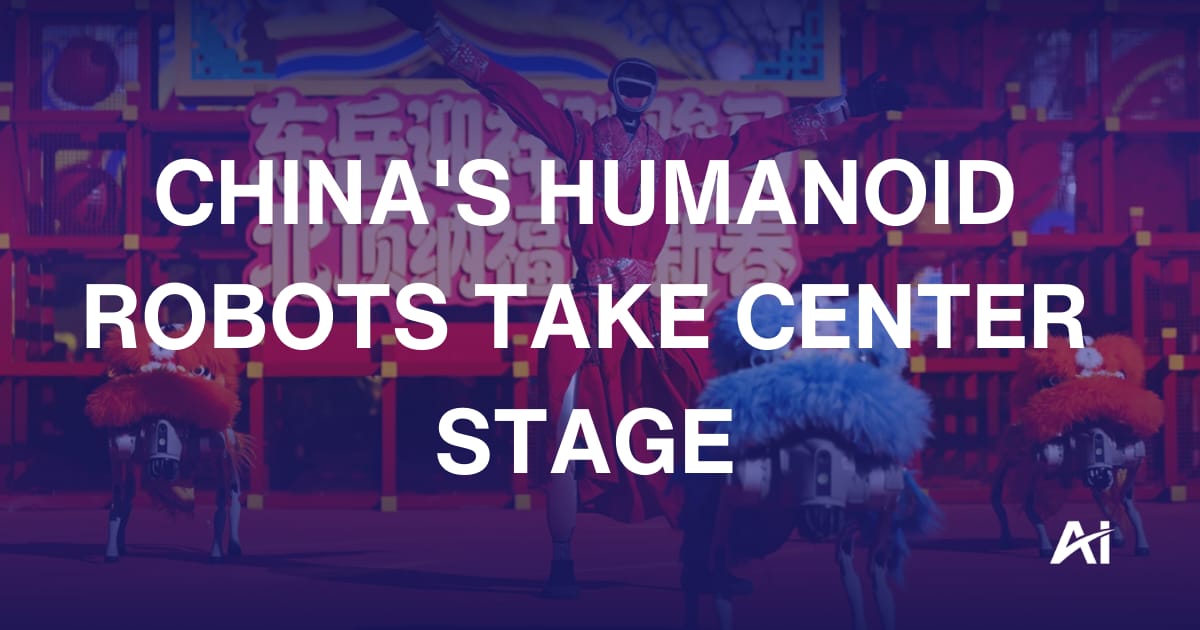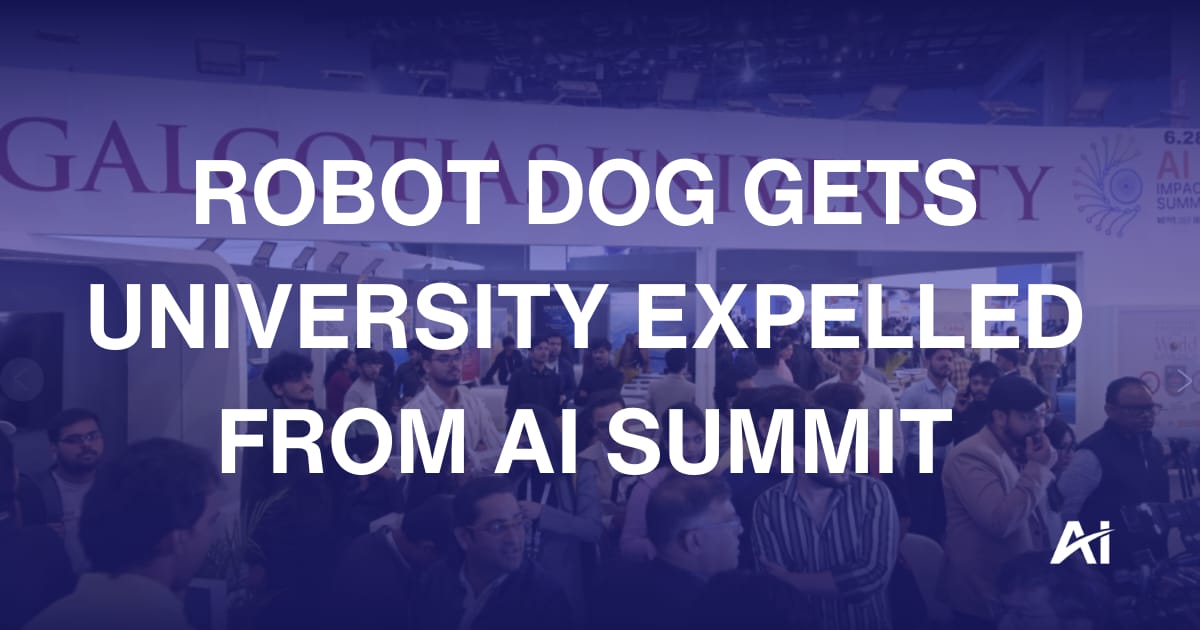
Subscribe to our free Newsletter
💌 Stay ahead with AI and receive:
✅ Access our Free Community and join 400K+ professionals learning AI
✅ 35% Discount for ChatNode
Welcome to The AI Report!
.png)

WORK WITH US • COMMUNITY • PODCASTS

Tuesday’s AI Report
• 1. 🧑💻 Sam Altman: Humans sound like AI
• 2. 🧑💼 Hire an AI BDR with Artisan
• 3. 🌍 How AI increased sales by 12% for this software company
• 4. 📈 Create McKinsey-grade decks with Xavier AI
• 5. 💡 Partner Perspectives
• 6. ⚙️ Trending AI tools
• 7. ✅ Anthropic says yes to AI regulation
• 8. ⚠️ Google admits web is in decline (finally)
• 9. 📑 Recommended resources
Read Time: 5 minutes
❓Tuesday’s Partner Perspective: Are you using AI to accelerate your voice, or are you letting it erase the context, character, and connection that makes your work unique? Scroll down to find out what the Founder of Linked Agency, Charlie Hills thinks ⬇️
✅ Refer your friends and unlock rewards. Scroll to the bottom to find out more!


Sam Altman: Humans sound like AI
🚨 Our Report
OpenAI CEO, Sam Altman, has admitted that he can no longer tell the difference between humans and bots on social media, taking to social media platform X to declare that “bots have made it impossible to determine whether social media posts are really written by humans.”
🔓 Key Points
He made this declaration after scrolling through streams of Reddit posts, praising OpenAI’s AI coding platform, Codex, which left him assuming they must be “fake/bots,” even though he knows “Codex growth is really strong.”
He’s also questioning whether humans have started to talk like AI (even though AI has been trained to sound like humans), creating a situation where no one knows who’s copying who, and what’s real and what isn’t.
Although it’s unknown how many social posts are written by bots or humans using AI models (like ChatGPT), data company Imperva reported that over half of web users in 2024 were not human, but bots and AI models.
🔐 Relevance
Altman’s outburst comes after reports surfaced in April that OpenAI was building its own social media network. This has left critics questioning whether his concern was genuine or if it was a strategic move, aiming to paint existing social media platforms as fake and bot-ridden, with OpenAI’s upcoming network an “authentic” alternative.
Hire an AI BDR that reacts to buyer signals
Meet Ava, your AI BDR that monitors your leads 24/7 and reacts the moment they’re ready to buy.
Ava tracks high-intent signals like fundraise announcements, job postings and website visits, then enrolls leads into personalized, multi-channel sequences.
Ava operates within the Artisan platform, consolidating every outbound tool you need:
300M+ high-quality B2B prospects
Automated lead enrichment across 10+ data sources
Multi-channel outreach with full email deliverability management
Live intent signal scraping with website visitor ID, fundraise announcements & more
Book a demo and supercharge your sales team.
Content is Dead
By Charlie Hills · Founder of Linked Agency
The AI Report Partner Perspectives Column

How AI increased sales by 12% for this software company
Docket, which offers a high-quality AI-driven sales assistant, was struggling to scale high-quality pre-sales support.
As demand grew, they didn’t have enough experienced customer support to answer technical inquiries and handle complex sales conversations.
They built an AI platform that learned from top-performing staff, absorbing their decision-making logic, providing real-time, contextual answers.
As a result, they saw a 12% lift in sales, signifying stronger conversion and revenue returns, and an 83% reduction in operational costs.
🧠 Xavier AI launches the first AI Consultant that creates McKinsey-grade decks
Xavier AI is the first AI consultant that builds McKinsey-grade decks in seconds.
Just type your prompt—get business plans, GTM strategies, investor decks, and more, instantly.
Built for execs and consultants
Backed by real data
$19/month vs $500K in consulting fees
⚡️AI Report readers get 40% off Pro plans with code: AIREPORT


Anthropic has endorsed SB 53, a California Bill that aims to reduce AI’s potential to cause “catastrophic risk” by demanding that AI model developers publish safety frameworks and safety and security reports.
According to Anthropic it’s not a question of whether AI governance is needed, these “first-in-the-nation” requirements will carve a path towards the thoughtful development of AI, as opposed to reacting to catastrophe.
Support from a major AI model developer marks a milestone for the bill, as many tech groups, including the Consumer Technology Association (CTA) and Chamber for Progress, believe it will stifle innovation.

After months of arguing that its AI-powered search feature isn’t reducing website visits, rather, it’s sending people to a wider variety of sites, in a court filing, Google has finally admitted that “the web is in rapid decline.”
This comes after the US courts told Google to break up its ad business to prevent an unfair monopoly over the ad-tech market, but Google argued that this would accelerate the decline of the web, harming publishers.
Google clearly has an incentive to make itself appear less monopolistic, but its admission that the web is in decline finally reflects many publishers' realities, after seeing a fall in visits since the rise of AI search features.

MORE NEWS
PODCASTS
ChatGPT Social?!
This podcast discusses OpenAI's recent ventures into job platforms and social media, exploring the implications for the future and the role of AI in job matching.

We read your emails, comments, and poll replies daily.
Until next time, Martin, Liam, and Amanda.
P.S. Unsubscribe if you don’t want us in your inbox anymore.









